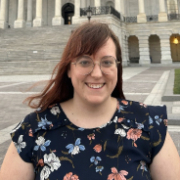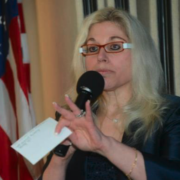January 31, 2024
Media contact: Nancy Glick, 202-320-5579, nancyg@nclnet.org; Simona Combi, 571-527-3982, simona.combi@ncoa.org
Washington, DC – Because obesity – the most prevalent and costly chronic disease in the United States –remains largely undiagnosed and untreated a decade after the American Medical Association (AMA) classified it as a serious disease requiring comprehensive care,[1] the National Consumers League (NCL) and National Council on Aging (NCOA) today introduced the nation’s first Obesity Bill of Rights and launched a grassroots movement – Right2ObesityCare – to advance changes in federal, state, and employer policies that will ensure these rights are incorporated into medical practice.
Developed in consultation with leading obesity specialists and endorsed by nearly 40 national obesity and chronic disease organizations, the Obesity Bill of Rights establishes eight essential rights, so people with obesity will be screened, diagnosed, counseled, and treated according to medical guidelines and no longer face widespread weight bias and ageism within the health care system or exclusionary coverage policies by insurers and government agencies.
“Our goal with the Obesity Bill of Rights is to define quality obesity care as the right of all adults and empower those with the disease to ask questions and demand treatment without discrimination or bias regardless of their size or weight” said Sally Greenberg, Chief Executive Officer of the National Consumers League. “For too long, adults with obesity have encountered a health care system that is working against them. They have been stigmatized, discriminated against, not treated with respect by their health providers, and have faced significant hurdles and burdensome requirements to receive obesity care.”
As described by Patricia Nece, J.D., Immediate Past Chair of the Obesity Action Coalition, “For my entire life, I’ve been a target of ridicule simply because of my weight. People rarely take time to look beyond my weight to see me.”
Currently, only 30 million[2] of the estimated 108 million adults living with obesity[3] have been diagnosed with the condition, and only about 2% of those eligible for anti-obesity medications have been prescribed these treatments.[4] The consequence of untreated obesity for the nation is worsening outcomes for over 230 obesity-related chronic diseases,[5] approximately 400,000 premature deaths a year,[6] and an estimated $1.72 trillion in direct and indirect costs to the U.S. economy.[7]
Defining Quality Obesity Care for All
The Obesity Bill of Rights establishes and promotes eight essential rights to drive transformational change and define the core requirements for people with obesity to receive person-centered, quality care:
- The Right to Accurate, Clear, Trusted, and Accessible Information on obesity as a treatable chronic disease
- The Right to Respect by all members of the integrated care team when screening, counseling, and providing treatment
- The Right to Make Treatment Decisions about one’s health goals and obesity care in consultation with the individual’s health providers
- The Right to Treatment from Qualified Health Providers including counseling and ongoing care from health providers with expertise in obesity care
- The Right to Person-Centered Care that is personalized, respects the individual’s cultural beliefs, meets their specific health goals, and considers the person’s whole health and not just their weight status
- The Right to Accessible Obesity Treatment from Health Systems, so those with severe obesity receive care in settings that allow for privacy, using size and weight-accessible equipment and diagnostic scans
- The Right for Older Adults to Receive Quality Obesity Care that comprises a respectful, comprehensive care approach consistent with their personalized medical needs
- The Right to Coverage for Treatment with access to the full range of treatment options for the person’s disease as prescribed by the individual’s health provider
“Collectively, these rights will ensure that adults with obesity have trusted, accurate information about their disease, respectful and nondiscriminatory care from medical professionals, and insurance that provides access to all treatments deemed appropriate by their health providers,” said Ramsey Alwin, NCOA President and CEO. “In town halls across the country, older adults told us they often feel invisible when seeking obesity care. The Obesity Bill of Rights recognizes and aims to address their unique challenges.”
Putting the Bill of Rights into practice
With the goal of reversing the trajectory of the nation’s obesity epidemic, NCL and NCOA will spearhead Right2ObesityCare, a new grassroots movement to engage people with obesity, their caregivers, health professionals, community leaders, employers, and a network of obesity and chronic disease organizations to drive adoption of the Obesity Bill of Rights in clinical settings.
Using the online hub www.right2obesitycare.org to mobilize stakeholders, Right2ObesityCare will focus on national and state policy efforts, including developing a set of national “obesity goals” for full implementation of the Obesity Bill of Rights by December 31, 2029. Plans include hosting regional town halls, workshops, and advocacy forums across the country; scheduling meetings with federal and state legislators and regulators; and arming interested citizens and advocacy leaders with materials and tools to advocate for implementation of the Obesity Bill of Rights in their communities and workplaces. NCL and NCOA also will pursue development of a model law that stakeholders can use to incorporate the Obesity Bill of Rights into state law.
“The Obesity Bill of Rights brings us a step closer to creating a society where all individuals are treated with respect and without discrimination or bias regardless of their size or weight. Establishing eight essential rights for people living with obesity strengthens efforts to end such blame, shame and discrimination and give individuals who want and need it, access to safe and effective options to improve their health,” added Joe Nadglowski, President and CEO of the Obesity Action Coalition.
Advocacy on implementing the Obesity Bill of Rights also gives policymakers new impetus to pass legislation that will remove the regulatory and insurance obstacles that keep many people with obesity from getting the care prescribed by their health providers.
According to Rep. Brad Wenstrup, DPM (R-OH), “By tackling obesity head on, we can better prevent numerous additional diseases like type 2 diabetes, high blood pressure, and heart disease. My bill, the Treat and Reduce Obesity Act (TROA), expands Medicare beneficiaries’ access to treatment options to include FDA-approved medications, clinical psychologists, registered dieticians, and nutrition professionals. Not only would this legislation help Americans live healthier and longer lives, but it can also save taxpayer dollars over the long run.”
Added Rep. Gwen Moore (D-WI), “Obesity is a chronic condition – not a personal or moral failing. We need to ensure our health care system treats it as a disease, so that Americans with obesity can access holistic, high-quality care that meets the full spectrum of their needs. I am proud to be a co-lead of the Treat and Reduce Obesity Act, which puts us on a path toward effectively treating obesity, helping create healthier outcomes for Americans and supporting enhanced quality of life for Medicare beneficiaries who need comprehensive care.”
Development of the Obesity Bill of Rights
A year in development, the Obesity Bill of Rights is the product of extensive research combined with four town hall meetings hosted in senior centers and churches in California, Delaware, Mississippi, and Oklahoma between June and August 2023. At these town halls, more than 250 older adults, community leaders, and local clinicians described a health care system that is inhospitable to delivering quality obesity care, and physicians described having limited time for counseling, not enough training in obesity management, and inadequate coverage and reimbursement for obesity care.
After turning this knowledge and the lived experiences of older adults into a first draft, NCL and NCOA hosted a roundtable at The Obesity Society annual meeting in October 2023 where leading obesity experts reviewed the preliminary document and made recommendations. NCL and NCOA then sought feedback from specialists in minority health, aging, and rural health, as well as health professionals and other stakeholders who provided additional guidance. The final step was to circulate the updated Obesity Bill of Rights to a wide group of stakeholder organizations, resulting in initial endorsements from 36 obesity, public health, and chronic disease organizations and medical societies.
Nearly 40 consumer, aging, and public health organizations endorse the Obesity Bill of Rights
To date, the following organizations have endorsed the first-ever Obesity Bill of Rights: 1) the Academy of Nutrition and Dietetics; 2) Alliance for Aging Research; 3) Alliance for Women’s Health & Prevention; 4) American College of Occupational and Environmental Medicine; 5) American Medical Women’s Association; 6) American Nurses Association; 7) American Society on Aging; 8) American Society for Nutrition; 9) Association of Black Cardiologists; 10) Association of Diabetes Care & Education Specialists; 11) Bias180; 12) Black Women’s Health Imperative; 13) Choose Healthy Life; 14) ConscienHealth; 15) Council on Black Health; 16) Defeat Malnutrition Today; 17) Gerontological Society of America; 18) Global Liver Institute; 19) Health Equity Coalition for Chronic Disease; 20) HealthyWomen; 21) Lupus Foundation of America; 22) MANA; 23) National Asian Pacific Center on Aging; 24) National Black Nurses Association; 25) National Hispanic Council on Aging; 26) National Hispanic Health Foundation; 27) National Kidney Foundation; 28) Noom, Inc.; 29) Nurses Obesity Network; 30) Obesity Action Coalition; 31) Obesity Medicine Society; 32) Patients Rising; 33) Partnership to Advance Cardiovascular Health; 34) Preventive Cardiovascular Nurses Association; 35) The Obesity Society; and 36) WeightWatchers.
###
About NCL
The National Consumers League, founded in 1899, is America’s pioneer consumer organization. The organization’s mission is to protect and promote social and economic justice for consumers and workers in the United States and abroad. For more information, visit www.nclnet.org.
About NCOA
The National Council on Aging is the national voice for every person’s right to age well. We believe that how we age should not be determined by gender, color, sexuality, income, or ZIP code. Working with thousands of national and local partners, we provide resources, tools, best practices, and advocacy to ensure every person can age with health and financial security. Founded in 1950, we are the oldest national organization focused on older adults. Learn more at www.ncoa.org.
[1] Obesity Medicine Association. June 19, 2013. “AMA House of Delegates Adopts Policy to Recognize Obesity as a Disease. Accessible at https://obesitymedicine.org/blog/ama-adopts-policy-recognize-obesity-disease/:
[2] PharMetrics-Ambulatory EMR database, 2018. Novo Nordisk Inc.
[3] Hales CM, et al. Prevalence of Obesity and Severe Obesity Among Adults: United States, 2017-2018. Centers for Disease Control and Prevention. NCHS Data Brief. No. 360. February 2020.
[4] PharMetrics-Ambulatory EMR database, 2018. Novo Nordisk Inc.
[5] Obesity Care Advocacy Network. Fact Sheet: Obesity Care Beyond Weight Loss
[6] Hurt Rt, et al. Obesity epidemic: overview, pathophysiology, and the intensive care unit conundrum. J Parenter Enteral Nutr. 2011 Sep;35(5 Suppl):45-135
[7] Milken Institute (October 2018), “America’s Obesity Crisis: The Health and Economic Costs of Excess Weight.”















